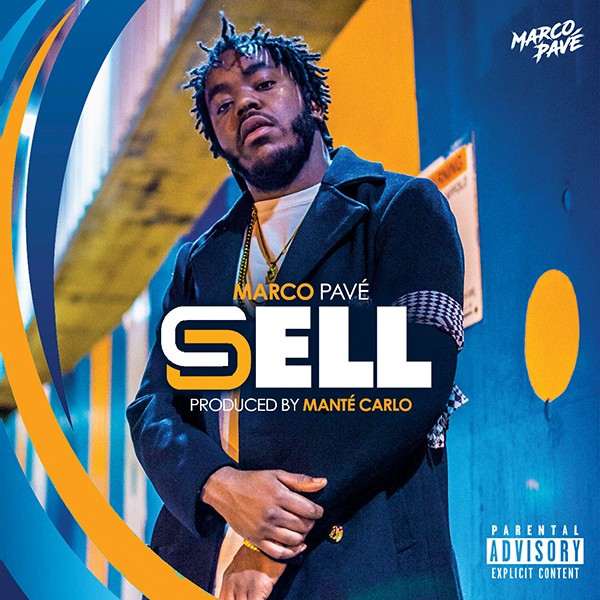Marco Pavé raised the profile of political rap in Memphis considerably with last year’s Welcome to Grc Lnd album, in which he wove the narratives of Black Lives Matter activists into his lyrical flow. It proved powerful enough to spawn an opera based on the album, a segment of which was staged in April in partnership with Opera Memphis. That might seem like enough to keep an artist busy, but Pavé has already moved on. He’s now turning his voice to a more personal story, albeit with its political edge intact.
Appropriately enough, we met to speak about his latest work at his first place of employment: a McDonald’s on Union Avenue. “I got fired from here for eating food on the job,” he notes with a bemused air. “You do that, you out. So, chicken nuggets!”
But such high school-era drama is ancient history. “I haven’t worked a job since 2013. And I don’t plan on going back to any job in that kinda way,” he says. “That’s really what this new music is about, being self motivated and pushing yourself to that next level.”
His new single and its accompanying video, “Sell,” can be seen as the ultimate retort to dead-end jobs, through the enterprising eyes of a dealer who’s avoided doing time. “Never seen a cell/But I used to sell/Real n*gga DNA, all up in my cells,” he chants, celebrating the rewards of the entrepreneurial spirit.
Payroll Music: Marco Pavé’s Fresh Approach (2)
“‘Sell’ is one of my favorite records of late. It’s about the illegal or unfair drug policies that we have in places like the South, specifically Memphis. Last fall I went on a West Coast tour, all the way out to Seattle, to see what the differences are. St. Louis and Kansas City have both decriminalized, so you won’t go to jail for smoking weed. And in places like Denver or Seattle, you can get rich.”

Buying, selling, and surviving is the overarching theme to all of Pavé’s newest work, which he’s calling Payroll Music. Don’t call it an album; these tracks will be unveiled piecemeal twice a month, for the foreseeable future. “It’s a music series,” Pavé notes. “It’s me really just having fun and getting back to telling more of my stories. Wecome to Grc Lnd was something that needed to be responded to immediately. And that’s what we did. But other than ‘One Hunnid,’ I was not able to tell who I am as a person. So that’s what Payroll Music is really about. On the first and 15th of every month, we’re dropping a brand-new song and a brand-new video.”
This alternative approach to music marketing grew out of necessity, as Pavé, even after much critical and artistic success, had trouble drumming up local investment. As he sees it, the lack of support, even in a climate of local rappers regularly going platinum, is a Memphis thing. “In Memphis, there’s a total disconnect between what’s happening in the world and what people want to be happening in the world. Memphis made the deliberate choice in the 1970s to really not be about money over racism. Atlanta is in Georgia; it’s still a racist place, it still has a police state, it still has all these issues, but they choose money over racism. Memphis will cut its nose to spite its face, and lose all the money possible just to not support black people. You would think that hip-hop would be elevated and supported, not only because they need the support but because hip-hop is a multi-million dollar industry.”
Look for the Payroll series’ next video, “Neva Lost,” next week, featuring Pavé riding herd on a couple of boxers. “The video is super fun,” he enthuses. “We shot it with real fighters. Brandon Gaitor is the main guy’s name. I think he’s undefeated in his career, so it’s really hilarious for me to be treating him like that.”
And what of the opera, which so recently generated buzz? “We had some interest from some investors. We’re still gonna try to have something on a larger scale by 2020.” In any case, the experience has left its mark on his craft. “Writing the opera put me in the mindset of character creation,” he muses. “So I think I’m gonna be there for a while, for a long while.”
See a video interview with Marco Pavé below:
Payroll Music: Marco Pavé’s Fresh Approach